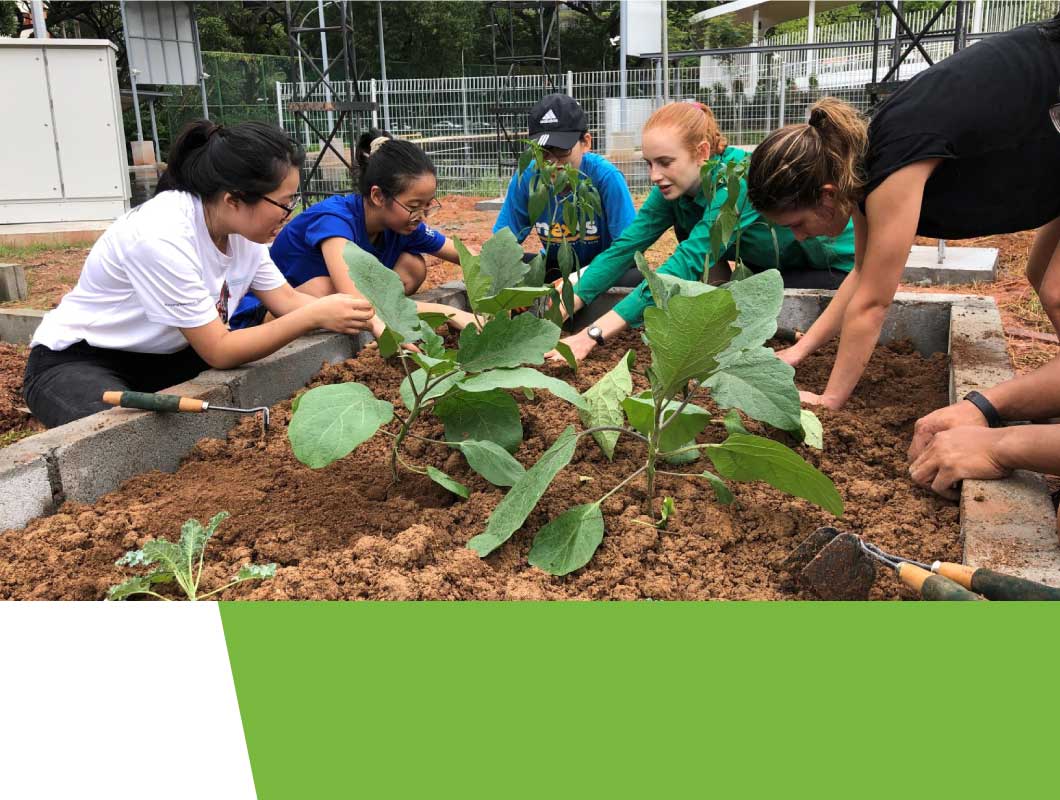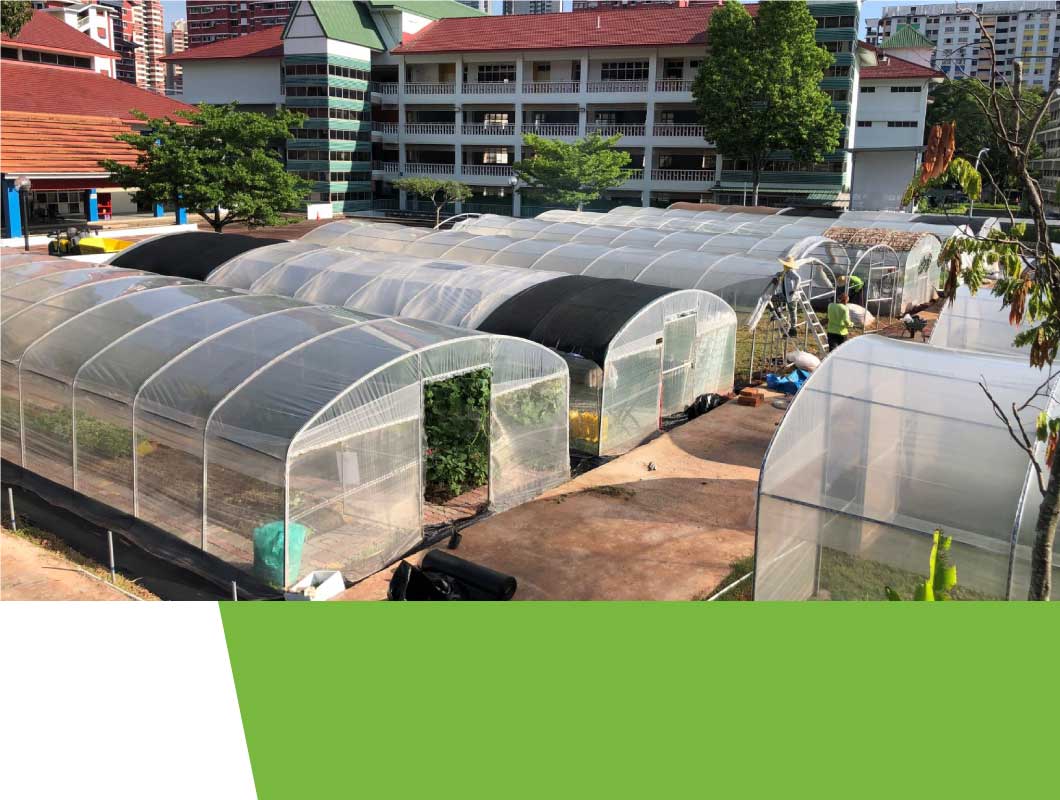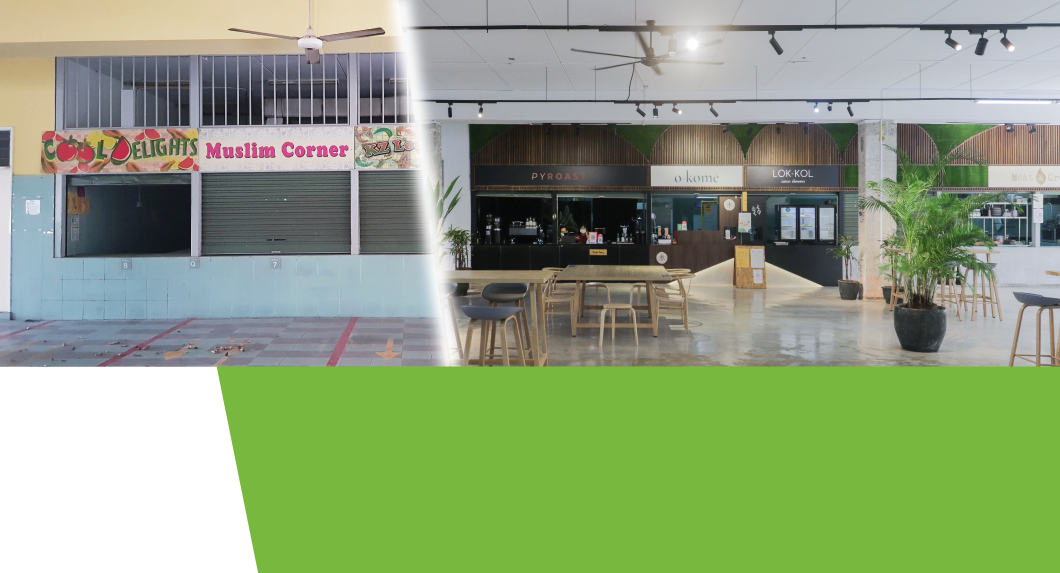In ultra-modern Singapore, it is sometimes easy to take basic needs, such as food security, for granted.
It is therefore refreshing to see a group of youths coming together to establish “City Sprouts”, a social enterprise which seeks to reconnect people with food. More than just an urban farm, City Sprouts aims to be a "food social hub" by seeking to encourage a community-driven sustainable lifestyle in a highly-urbanised Singapore.

Given the traditionally land-intensive nature of agriculture and Singapore’s space constraints, one may be surprised to learn that City Sprouts is actually located right in the heart of Redhill, at the former Henderson Secondary School. The team proudly envisions the space, named the “Sprout Hub”, as a food and social hub that will promote urban agriculture as well as learning and a sense of community.
We speak to one of the co-founders of City Sprouts, Mr Chee Zhi Kin, 26, to find out more about just how they were able to transform the school and convert the existing infrastructure to fit the needs of not just an urban farm, but also a place where people can share knowledge and build communities.
1) Let us start with the question on everyone’s minds: Why a school? Why not a location that is more traditionally suited to farming (e.g. large open lands for agriculture, especially in the west of Singapore)?
Our focus was on creating a community-driven farm that brings farming closer to the people. Hence, we did not look at traditional spaces for farming that would be more production- and yield-oriented. Furthermore, we were really drawn to the concept of having an urban farm in a co-located space — in this case, between a childcare centre and nursing home — to show that farms can be set up anywhere with a little creativity!
Ultimately, we saw the potential to develop robust solutions for modern agriculture, while connecting people to food production.

2) What were some of the biggest challenges moving into the school? What were some of the major changes you had to make to make Sprout Hub a reality?
One of the biggest challenges was infrastructure. First, we had to understand how we would adapt or modify our initial concept and offerings to fit the existing space. Secondly, we had to equip the space with all the necessary utilities such as electricity, water and telecommunications to transform an old school building into a facility that would be able to accommodate our needs.
3) On the other hand, which parts of the building were kept as it was?
Interestingly, we actually kept most of the existing space the way it is.
We decided to preserve the structure and overall look of the school because one of our main goals, after all, is to educate. For example, we repurposed the old school hall into an indoor agriculture platform as well as a knowledge centre for modern farming.
At the same time, most of the school was in perfect working condition anyway—we just had to be creative with the space to make it suit our needs!

4) What is your vision for City Sprouts and the Sprout Hub? What is the team’s vision for the next five to 10 years?
We definitely have a few goals for Sprout Hub.
First, we want to breathe new life into this forgotten space—and I think we’ve done just that! Next, we aim to develop solutions that we hope will educate and bring people closer to food. We also want to bridge the intergenerational gap between the young and the old through our programmes.
Should this pilot project prove successful, our long-term vision for City Sprouts is to replicate and scale this model of farming to other underutilised spaces in Singapore.



